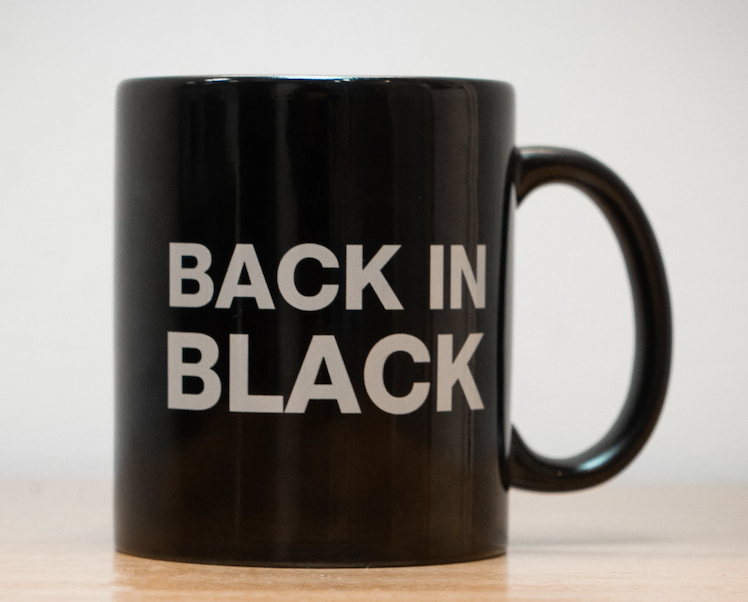Australia’s economic growth improves, but hold the champagne. Economic headwinds? Not really. Economy stronger than the OECD, Europe, Canada and the UK? Errr … no. Strong jobs growth? Sorry, no. Alan Austin runs his ruler over the latest quarterly accounts.
At last we have a report from a statutory authority which is not entirely bad news for Australia’s economy and its long-suffering citizenry. Growth in gross domestic product (GDP) for the last three months of 2019 came in at 0.53% for the quarter and 2.19% for the year. That’s according to Wednesday’s quarterly accounts from the Bureau of Statistics. Still, it is before bushfires and coronavirus.
This is one of few updates since 2013 in which the economy has not gone backwards — relative to prior periods in recent history, or relative to comparable economies, or both. The latest annual growth rate was a welcome rise from 1.82% in the September quarter and the dismal 1.62% last June. It was marginally better than the December result a year earlier of 2.17%. It remains, however, well below the 20-year average of 2.89%, a period which includes the global financial crisis.
The December figures may have reversed Australia’s inexorable six-year slide down virtually all global tables. It is too early to be certain.
Positive and negative factors
Contributors to this modest growth included minerals and energy exports, real estate sales, expansion of government services and a small rise in household spending. Domestic demand rose only 1.87% over the full year.
The impact of the pre-Christmas bushfires is difficult to assess. Treasury estimated on Thursday “the bushfires will detract around 0.2 percentage points from GDP growth across the December 2019 and March 2020 quarters” but acknowledged impacts are “not easily quantified”.
The fires may actually have increased economic activity via evacuations, temporary accommodation, hiring of temporary labour, provision of emergency supplies and increased sales of petrol and aviation fuel. Disasters usually serve to boost GDP. Homes, farm buildings, fences and livestock destroyed reduce the nation’s assets, but replacing them boosts activity. This is why some observers query whether this measure is a reliable indicator of an improving society.
Global economy still robust
We have September or December GDP figures for 124 countries, which average a healthy 2.97% annual growth. Among the 36 developed member countries of the OECD, only Mexico is currently in recession — a very shallow one with December’s quarterly growth at negative 0.10%.
Among those 36 countries, Australia’s 2.19% annual growth is slightly better than the 2.12% average and ranks 16th. This is an improvement on 21st ranking three months ago.
Beyond the OECD, the only economies contracting – all of them shallow technical recessions – are Hong Kong which is experiencing unprecedented political upheavals, Belize, South Africa and the oil-rich kingdoms of Qatar, Saudi Arabia and Kuwait.
Urgent memo to Josh
In his circular letter to the party faithful on Wednesday, Treasurer Josh Frydenberg made several assertions which are not accurate.
Item one: “Australia faces economic headwinds.”
No, not really. As shown above, average GDP growth for all economies which have reported September/December figures is 2.97%, which is historically high. This is unchanged from the previous quarters.
Demand for Australia’s resources continues strong and Trump’s trade wars continue to benefit Australia, Brazil, Chile and Russia at the expense of the USA.
Item two: Australia’s “economy grew by 2.2% through the year to December 2019, stronger than the OECD, Europe, Canada and the UK.”
Not at all. We do not have the December data for all OECD countries yet, nor for many European countries, nor for Canada. The UK, of course, is facing particular challenges with Brexit. Australia’s current global ranking on annual GDP growth is a lowly 74th, down from the top twenty during the Labor years.
Item three: “Our jobs growth over the last year was stronger than the US, Canada, Europe, the OECD and New Zealand.”
Unless the treasurer is accessing data not available to other professionals, this is simply false. The World Bank has a full list of jobless rates for all years for all countries, regions, sub regions and economic groupings here.
It shows Australia’s jobless rate improved by 0.059% in 2019 — up from 5.387% in 2018 to 5.328%. It shows the US rate improved by 0.064, which is higher. The rate in the European Union increased by an impressive 0.338%, while the Euro Area economies improved their rate by 0.417%.
Australia’s actual jobless rate is still above that in New Zealand, the USA and 21 European economies, although lower than Canada’s.
Item four: “Since this Government was elected, over 1.5 million new jobs have been created, the unemployment rate has fallen and the participation rate is around record highs.”
Yes and no, Josh. Jobs created now number 1,541,200, which looks okay. But the workforce has increased by 1,559,300, so the number unemployed has grown by 18,100.
Yes, the jobless rate has fallen slightly. But Australia’s OECD ranking has collapsed from seventh to 19th. Higher participation rates are not necessarily desirable. During the global good times, more elderly people should be able to retire and more teenagers stay on at college.
Item five: “We will continue to deliver on our plan and provide responsible economic management.”
Continuing the policies of the last six years is not responsible. Australia has tumbled on virtually all key measures relative to the rest of the world over that period.
Company tax collection increases are well behind profit growth. Net debt last Friday reached a new record of $430.211 billion, 167% greater than when the Coalition took office. Gross debt is now up to $571.4 billion, deeper than the inherited level by a factor of 2.1.Interest rates are at desperation levels, with the Reserve Bank having slashed them again on Tuesday to a fresh all-time low. Wages are barely keeping pace with inflation.
As we saw here last Monday, underemployment is at a record high, total hours worked per person are at an all-time low and outcomes for women, young Australians and the long term jobless remain dismal.
Finally, does Frydenberg’s refusal in recent weeks to repeat the “budget back in surplus” mantra which helped win the last election signal a change of policy? It would excellent if it did.

Liberal Party Official Back in Black Mug $35. LIMITED EDITION. (Quoting current Lib website: “The 2019 Budget delivers the first surplus in more than a decade. Mark this event with the official Back in Black mug.”)
———————-
Record underemployment as Government braces for volatile week, slew of new data
Alan Austin is a freelance journalist with interests in news media, religious affairs and economic and social issues.

